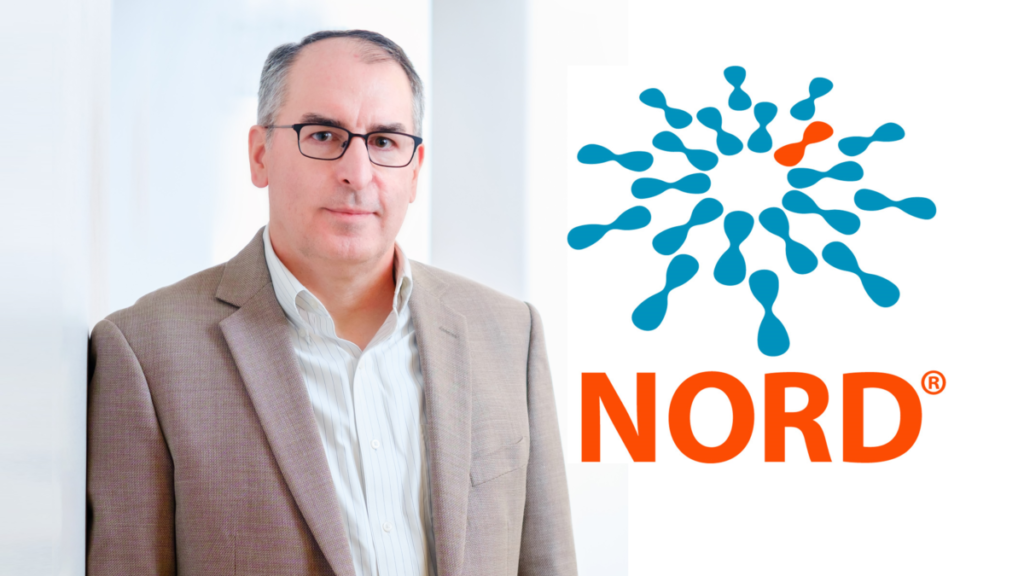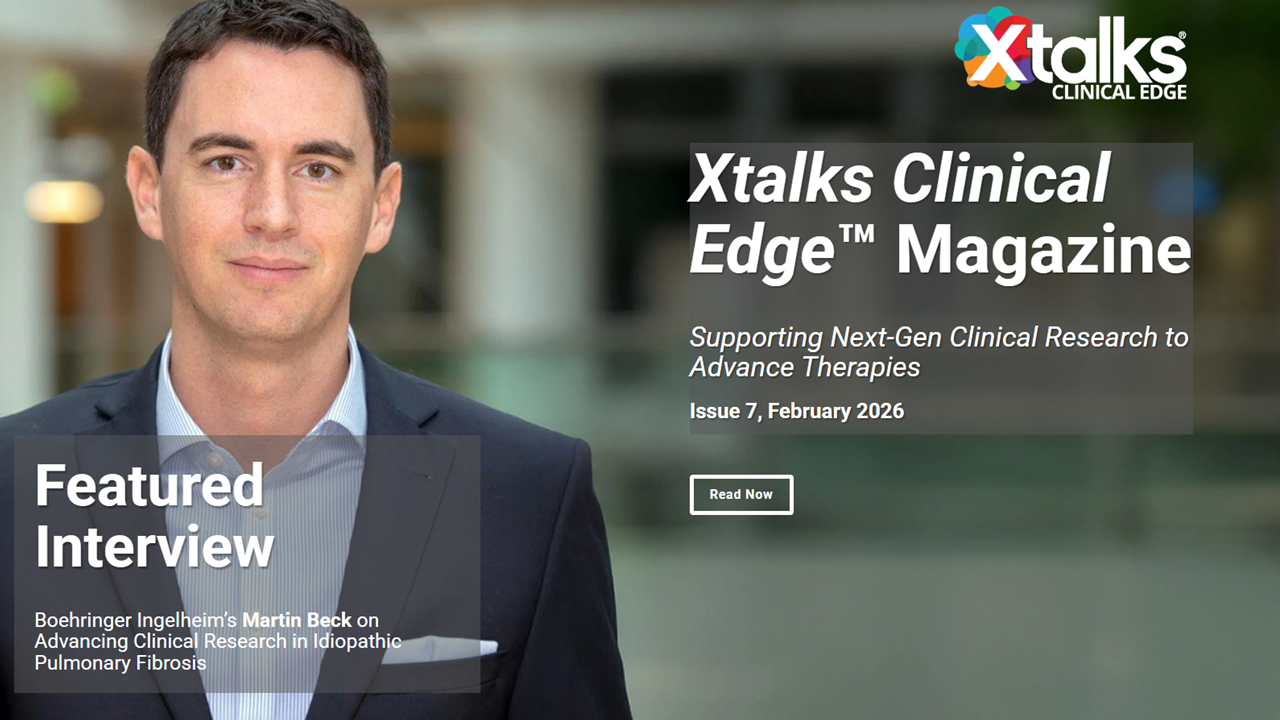The National Organization for Rare Disorders (NORD) is a patient advocacy organization that is devoted to people with rare diseases and the various organizations that help them. NORD, along with its more than 330 member patient organizations, is “committed to the identification, treatment, and cure of rare disorders through programs of education, advocacy, research, and patient services.”
NORD’s Chief Medical and Scientific Officer is Dr. Edward Neilan, MD, PhD. Prior to joining NORD, Dr. Neilan has contributed to the rare disease community through his comprehensive work in the rare disease space that has included research, academia, medical practice and clinical trial design and execution.
Xtalks interviewed Dr. Neilan to learn about his work at NORD and how NORD aims to enhance patient access in rare disease clinical trials. Read on to learn more!
Can you tell us a bit about the work you are doing at NORD and how it impacts clinical trials for rare diseases?
Dr. Neilan: NORD is a nonprofit patient advocacy organization dedicated to individuals with rare diseases and the organizations that serve them. NORD, along with its more than 330 member patient organizations, is committed to the identification, treatment and cure of rare disorders through education, advocacy, research and patient services.
Since only about 5 percent of rare diseases have FDA-approved treatments, it is vital that we increase the pace of rare disease clinical research. NORD has many programs that aim to do that, including programs administered by our departments of Patient Services, Membership, Research and Medical Affairs. For example:
- NORD Patient Services partners with study sponsors to provide travel and lodging assistance for clinical trial participants. This support lessens or eliminates the financial burdens faced by patients and families who are enrolled in clinical trials, which makes the studies accessible to a more diverse patient population.
- In the first three quarters of 2022, we provided clinical trial travel and lodging support for 116 patients across eight study sponsors.
- NORD Information and Resource Services team helps rare disease patients and families fully understand what participation in a clinical trial means and helps eligible participants understand the medical terminology that is included in information provided by study sources, such as ClinicalTrials.gov.
There’s been a paradigm shift in recent years of patients having a “seat at the table” in the research and drug development that directly affects their lives. From coordinating natural history studies, to actively collaborating with researchers and drug manufacturers involved in clinical trial design, patients now have an increasing voice in trials. They are no longer just consumers of treatments and participants in trials – they are citizen researchers.
NORD supports patients and patient advocates by providing critical education and supporting their knowledge of how to effectively engage with researchers and drug manufacturers, as well as navigating the research and drug development processes. For example, the RareLaunch online learning system helps rare disease patient advocates and nonprofit leaders learn how to become “research ready.” NORD works with more than 1,000 rare disease nonprofits — more than 330 of which are active NORD Member Organizations who meet the highest qualifications for research and patient support.
Is there a plan for the NORD Rare Disease Centers of Excellence to increase access for patients to participate in rare disease clinical trials?
Dr. Neilan: Yes, the NORD Rare Disease Centers of Excellence (RD CoE) aims to improve participant access in rare disease clinical trials through several mechanisms.
Unfortunately, most rare disease clinical trials are conducted at only a few locations — largely because of the cost of setting up multiple clinical trial sites and the sparsity of qualified experts available to run those trial sites.
Our network of CoE sites works to make trials more accessible. These sites are widely distributed across the country, in both larger and smaller cities, and we are focused on collaboration efforts that help lower the barriers to opening multiple trial sites. These factors, combined with the potential for coordinated travel support through NORD, make it more likely that rare disease patients living at diverse locations across the country will be able to access an appropriate clinical trial site, when a traditional clinical research visit is needed. These decentralized clinical trial designs, which seek to reduce the number of traditional, centralized clinical research visits required to collect the needed research data, help increase access to clinical trial participation.
How is the NORD advocating to help improve patient recruitment and retention in rare disease trials?
Dr. Neilan: NORD’s Policy department advocates at the federal and state levels for diversity, equity and inclusion in clinical trials and for innovative regulatory science that helps to enable decentralized clinical trial designs and other efforts that reduce the barriers of clinical trial participation. The NORD Education and Membership departments also have programs that increase awareness of the importance of clinical research and equitable access to research participation.
What are some examples of decentralized clinical trial (DCT) methods that you believe would be greatly useful in rare disease clinical trials?
Dr. Neilan: While certain types of vital clinical trials will continue to require visits to specialized medical facilities — such as data gathered through special examinations or testing procedures, especially those requiring complicated medical equipment — other kinds of clinical trial data can be easily collected with reduced patient and family burden using decentralized means, such as:
- Remote (e.g., video call) study visits.
- Home visits by nurses or other research staff.
- Self-reporting by study participants or family members.
- Blood draws and other procedures that can be done at either the participant’s home, or a local facility.
- Wearable sensors and other digital data collection technologies.
In your opinion, what are the main challenges of incorporating decentralized and digitally enabled techniques in rare disease clinical trials?
Dr. Neilan: Application of the rapidly evolving new technologies or approaches is limited somewhat by lack of awareness or familiarity on the part of investigators and/or regulators, either of which may result in defaulting to older, “proven” means. The concept of “fit for purpose” evaluations, which have been used before in similar trials, and therefore can be assumed to be readily accepted by regulators and thus to be a “safer” study design choice is obviously also a potential factor.
Of note, some exceptions to usual procedures were made as a matter of necessity during the height of the COVID-19 pandemic, which may not necessarily be used in future, if there is no longer a perception that the prevailing environment limits the safety/practicality of a more traditional clinical trial methodology.
Are there any examples of the NORD partnering with sponsors/industry to improve the use of DCT techniques in rare disease trials, or is this a future possibility?
Dr. Neilan: NORD is well versed on the burdens clinical trial participation causes for patients and their families. We’re also acutely aware of how such burdens often limit participation by under-represented populations and other specific groups, with adverse effects on clinical trial diversity, equity and inclusion. Therefore, we are committed to continuing to develop and employ decentralized clinical trial methodologies.
A noteworthy example of NORD’s approaches in this regard is the “HOME Study,” which is an FDA-funded, NORD-run, decentralized natural history study of metachromatic leukodystrophy (MLD). This is a forward-leaning study that — prior to the onset of the COVID-19 pandemic — was designed to be conducted entirely “online” with no traditional clinical research visits. Instead, data is self-reported by patients and/or family members via online surveys and other remote means. Each participant and/or family is provided with a tablet to help ensure connectivity for the study. The tablet enables video call visits with a research nurse, who uses the video connection to collect data, including assessment of the study’s primary endpoint, the Gross Motor Functional Classification — MLD scale. Another part of this study is an App, designed by IBM, that allows families to self-report additional data, such as non-study-related medical visits or other potentially relevant events, and to report on their satisfaction and/or experiences during the study.












Join or login to leave a comment
JOIN LOGIN